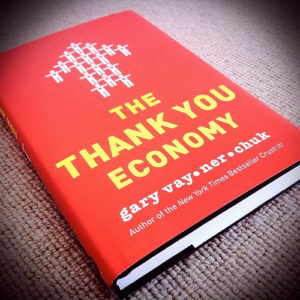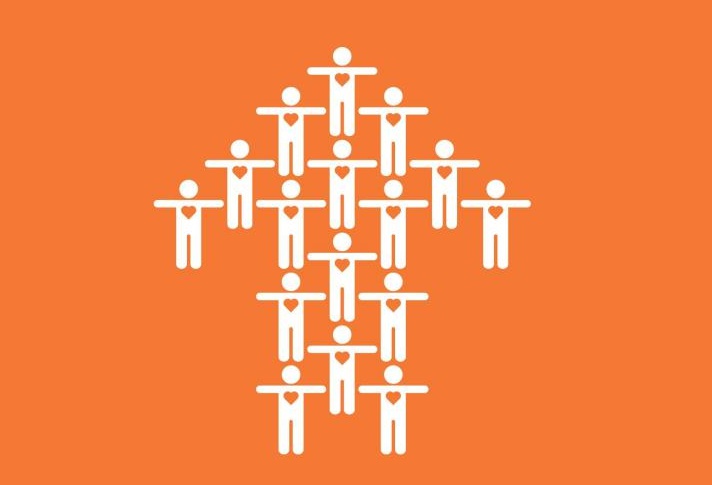With all this talk about Bitcoin getting a hard fork because of the insanely high transaction fees and full blocks that make trading bitcoin nearly impractical, very few are talking about the hard fork that already happened with the entire economy.
Let’s be honest, about the late 70’s and early 80’s a trend started emerging in the global economy. It was a very nasty one. Sure there are others but this one is not much of a product of state intervention or laws. That is the severance of relationships by firms with their customers. This was truly realized in the 90’s and doubled down on in the Naughts. I listen to stories of people who lived before this era opine about these days when the butcher would remember your name and know what you liked. Where the drug store knew what your prescriptions were and would start getting them ready before you even got to the counter. That the local ice cream parlor would remember your daughter Sally liked chocolate and would give her a sample of the new chocolate-based flavor. These relationships were vital. People didn’t care about the new shop that was slightly cheaper, because they knew John who ran the shop was a friend who was there to help, not to hock them shit.
This all came to a screeching halt when bigger businesses moved in and followed marketing whitepapers, and learned quickly that the public doesn’t have a platform to complain. They traded in their human phone operators to computers that only frustrated their consumers. The little businesses followed suit because they knew that mathematically it was cheaper and it gave them a veil of looking bigger than they were. They could operate cheaper, they could provide lower prices to the consumer. People took this as an economic choice. They prefered shit service because prices were better.
Now that’s not to say there aren’t great local firms giving this type of service thought this era, but the trend was very much in the other direction. You could rely on a business model that cared about people or one that could compete on a price level. Sadly the demand for merchant relationships was a niche product that even people who dreamed for a return to the old didn’t want to shell out the cash to get it. So they went to big box stores and chains.
If there was a problem, chances were the resolution wasn’t that great. Then what? You told your friends? Wrote a letter to the editor? What did that accomplish? Sure there’s examples like when AOL refused to close a man’s account. It took him recording the whole exchange and luckily having a major news outlet run the story for anything to change. How long was this process going on before then? How many time have you heard a friend complain about AOL in the 90s? If you were around then, you’d remember it was quite a bit. Still, people paid for their crap service because they stood atop the marketing behemoth. How often did these terrible services go on without getting the public scorn?
Marketing back in those days had a high barrier to entry. Print, TV, and radio ads were expensive and unless you could pump out as many of them as Budweiser, it fell on deaf ears. If your pizza wasn’t being advertised during the Super Bowl, no one gave a fuck. If you wanted to know about the best new business you had to be told about it by your TV. Your friend would tell you “Blockbuster Video sucks because the staff doesn’t know shit about movies, go to Joe’s Video instead” but you didn’t care because Blockbuster was there, it was cheap, they had everything, they had brand recognition, and that was that. Now this isn’t the case.
A hard fork in the crypto-space (in very layman’s terms here) is when another version of the cryptocoin is created using the older blockchain but implementing features the old chain doesn’t implement. The new chain runs parallel with the older chain and then market decides if it wants to use the old blockchain, or the new one, or both like what happened to Etherium and now Etherium Classic. I believe this is what’s happening to capitalism and, in my humble opinion, it’s fantastic. Not perfect, but fantastically better.
The dinosaurs are thrashing in the tar pits. Older conglomerates are still doubling down on a marketing machine that doesn’t work. They still ignore their customers because they think they are invincible to their cries for better service or against their wrongdoings. They couldn’t be more wrong. In the book The Thank You Economy by Gary Vaynerchuk (a.k.a. Garyvee) he talks about the way marketing is moving. It’s becoming more democratized (not a democracy) so that people like you and I who have less than a thousand Twitter followers can be heard just as loudly as a company like Best Buy. They could be devastated if they commit wrongdoings to their customers and refuse to resolve it. It also gives a chance for the mom and pop electronics shop to provide relationships to current and prospective customers better than any ad on TV will ever give them.
doubling down on a marketing machine that doesn’t work. They still ignore their customers because they think they are invincible to their cries for better service or against their wrongdoings. They couldn’t be more wrong. In the book The Thank You Economy by Gary Vaynerchuk (a.k.a. Garyvee) he talks about the way marketing is moving. It’s becoming more democratized (not a democracy) so that people like you and I who have less than a thousand Twitter followers can be heard just as loudly as a company like Best Buy. They could be devastated if they commit wrongdoings to their customers and refuse to resolve it. It also gives a chance for the mom and pop electronics shop to provide relationships to current and prospective customers better than any ad on TV will ever give them.
Let’s say you’re the owner of this Mom and Pop tropical fish store. You can go on Twitter, look in the search in their area of people complaining about troubles with getting a coral to survive in their tank. They can respond to them using the company account with help. Genuine help, not “Come to our shop and buy this” I mean actual advice. People have a chat and fix their problem. That is a relationship with a person money cannot buy and everyone stands to gain. The best part is that relationship is lopsided in the right way, it’s leaning on the customer. Sure there’s no guarantee that they will go to their shop for all of their needs, but they will know they care and when they look at who is helping them, they’ll know they exist. If that store spent time helping people in their area via Twitter, they will form a relationship that no Mega Tropical Fish Mart could achieve and people will go back. Not just twitter, but any social media outlet people use.
Think about Yelp. It used to be that if you wanted to find something good in your area, you asked a friend. Sometimes you’d be skeptical and go to a chain. Sure the chain wouldn’t be nearly as good but you could rely on the mediocrity they sold. Word of mouth was great but what if no one in a particular social group ever visited that place? That’s a huge loss of income. Now when people look for something nearby they crack open Yelp and see what everyone says. They see it all. The good, the bad, and the nonsense. They can see pictures of the food. They can see people praise the service. Likewise they can see people condemn it. Now going to a new spot to shop or dine is far less of a gamble thanks to this new technology.
Even the job market is getting better with services like Glass Door which allows prospective employees to see what people say about working for a company. Is the boss a jerk who treats you like crap? That info is right at your fingertips. You can seek out places to work that are far better for the workers.
But things aren’t just going back to the way they were, things are vastly improving it. The firms that are growing today are the ones who provide value to their customers before they are their customers. Firms are starting to give stuff away, their best stuff away, knowing that they will develop a relationship their their customers that will make them want to pursue a financial transaction later. Be it content, help with products they bought from other vendors, advice, to physical things like food, swag, and even free products.
Now I don’t have the most optimistic outlook on the global economy nor the US economy because it tends to steer in the direction of more state interventions. Even considering this hazard it looks as though the price of what most people would consider necessities (sans healthcare) are falling in price. They get cheaper though the older notions of what we would consider a market economy via competition, innovation, and trade. Though things like regulations, taxations, tariffs…etc. do get in the way, but they aren’t as fast as innovations. Unless there’s a nationalization or Obamacare for the food industry, food will be similar to water. So cheap that firms will offer it at no cost just to get you in the door to see their new line of 3D TVs or even bum wine. If you want something better, there’s a host of finer dining available.
Gone are the nightmarish (and false) world Marxists paint of having to work under an abusive boss just to survive when goods are so cheap that it’s used to get you to have a positive view of their company. Will shelter be provided to people down on their luck knowing once they advance their situation they will return having a meaningful relationship with that company? Time can only tell but the shift seems to be heading in a direction where something like that could emerge.
Now that’s not to say this will all be perfect. There will always be a negative bias in reviews on these platforms. There will always be hoaxes like the Wendy’s Chili Finger that will hurt an innocent firm. Amazon will still affirm their domination over distribution. The free stuff given to people won’t exactly be the best choice someone would make otherwise (i.e. giving them a greasy burger over a salad.) Sure, but this emergent world is a lot better than the “glory days” our elders wished were back and certainly a lot better than what we had 10 years ago.
I doubt in the decades to come that it would be possible to run a business like a lot of dinosaurs operated in 2007. If you want to survive this new fork in the economy you’ll have to provide your customers a relationship. You will have to show you care and not just provide the “hurry up and buy” mentality we’re so used to. A family run shop is making a comeback. Not always necessarily in the brick and mortar scenario, but dealing with Mark’s Computer Repair will always be far superior than Geek Squad because Mark gives a fuck. If not, the whole town will hear about it on Twitter and Facebook and seek out someone who does care.

